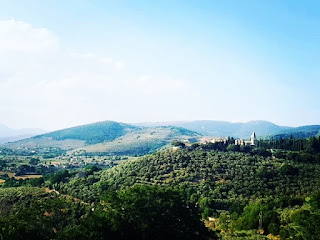FIrst Phenolab Summer School–Applying Phenomenology: How, Why, and When?
Jan 6th, 2024 | By Marc Applebaum | Category: UncategorizedWhen: June 3-7, 2024
Venue: Palazzo Trinci in Foligno (PG), Umbria
For any query or information please contact phenolab2019@gmail.com
Keynote Speakers:
• Prof. Dr. Scott Churchill, Full Professor of Psychology, University of Dallas, USA
• Prof. Dr. Magnus Englander, Associate Professor of Health & Society, Malmö University, Sweden
• Prof. Dr. Susi Ferrarello, Associate Professor of Philosophy, Department of Philosophy and Religious Studies at California State University, East Bay, USA
• Prof. Dr. James Morley, Professor of Clinical Psychology, Ramapo College of New Jersey, USA
Call for papers:
Over the last 70 years, the interest of the social and medical sciences toward phenomenology has been growing. The reasons for this can be sought in several factors: on one hand, the specificity of the phenomenological method, capable of eliciting the subjective experience of the person in accordance with how it is experienced, without the imposition of external explanatory frameworks, is suitable to explore those qualitative dimensions that otherwise would remain obscure or unrecognised to other methods of investigation; on the other hand, the vocation of phenomenology, originally conceived by Husserl as descriptive psychology, has allowed an intersection of fields of knowledge related both to practices of care and to efforts for redefining diagnostic categories. Especially in the field of mental health, the use of the phenomenological method in general is harbinger of a paradigm shift from a third-person, disease-centred perspective, into a first-person approach. Narratives from the first-person perspective — as well as from our “second-person” perspective when we bear witness to the other — put into focus how it is to live with a mental health condition and how it is to have certain experiences.
The literature on phenomenology and the interdisciplinary dialogue with other fields of research is immense, as well as the one on the intersection of the phenomenological method with qualitative analysis. The aim of this summer school is to offer participants philosophical clues and train them in applying phenomenology. For this reason, the 5 days of work in the frame of the PhenoLab summer school are guided three fundamental questions: how can we applying phenomenology? Why we should embark ourselves in this endeavour? When are we entitled to use the phenomenological method in health and social sciences?
The 5 days of work will be divided in two sessions: every morning oral presentations and discussions; afternoon training, laboratories and discussions.
Also for this reason, please note that only a maximum of 50 oral presentations will be admitted.
This call for papers invites authors to submit a separate file with their short bio and affiliations, and 1000 words abstract about themes including, but not limited to, the following:
– variety within phenomenology: historical aspects, key concepts, and advancements
– challenges in the development of phenomenological method and its application in social and medical sciences;
– critical analysis of the phenomenological method in the clinical and social settings;
– from theory to practice: clinical examples of applying phenomenology
– emotional dilemmas and phenomenological reflections
-applying phenomenology to issues in bioethics and ecopsychology
Contributions for oral presentations are requested to be sent by email to phenolab2019@gmail.com specifying in the subject CALL FOR PAPERS – PHENOLAB SUMMER SCHOOL
The submission deadline is January 15, 2024
Notification of acceptance will be communicated to the authors by email by February 15, 2024
The proceedings of the Summer School will be published at the beginning of 2025.
Registration fees:
Early birds for oral presentations 200 euros (until March 15, 2024)
Fees for oral presentations: 300 euros
Fees for non-presenting participants: 150 euros
(Non-presenting participants are invited to participate in the discussions)

 Follow
Follow email
email